#僕は猫です
Explore tagged Tumblr posts
Text
今日読んだ漫画 2023年8月8日(火)
パルシィ(漫画アプリ)
🔫『キリングライン』モリエサトシ
LINEマンガ/デジタルマーガレット(デジマ)
☔『この恋は世界でいちばん美しい雨』碧井ハル+宇山佳佑
作品ページ
⬇️
この恋は世界でいちばん美しい雨
🌸『桜のような僕の恋人』加藤朱々+宇山佳佑
作品ページ
⬇️
桜のような僕の恋人
LINEマンガ
🌸『恋々こい』しちみ
ミモット
🐱『吉川さん家の猫事情』吉川景都
作品ページ
⬇️
【吉川さん家の猫事情】#1話 「家に猫が5匹もいると…」 - マンガ連載:吉川さん家の猫事情 - mimot.(ミモット)
マーガレット2023年17号
✨『はじめまして あなたが好きです』杏野まこ
📱『大好きなんですごめんなさい』須田かのん
☂️『成瀬くんの一途な恋』小夏あこ
👮♂️『全力警察24時!』まあやん
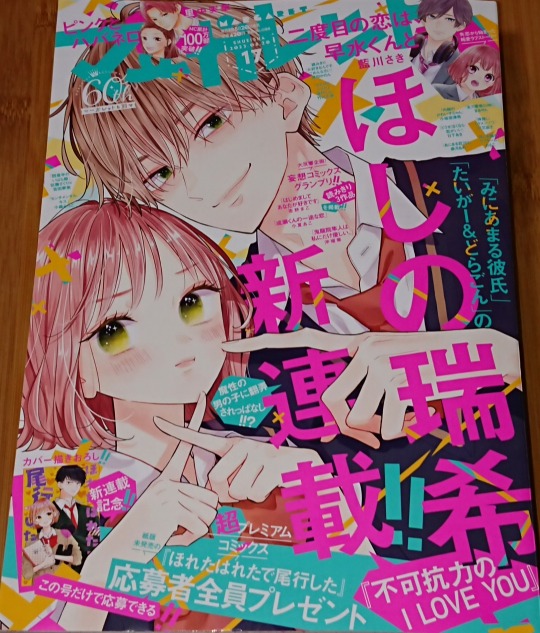
#今日読んだ漫画#キリングライン#モリエサトシ#この恋は世界でいちばん美しい雨#碧井ハル#桜のような僕の恋人#加藤朱々#宇山佳佑#恋々こい#しちみ#吉川さん家の猫事情#吉川景都#はじめまして あなたが好きです#杏野まこ#大好きなんですごめんなさい#須田かのん#成瀬くんの一途な恋#小夏あこ#全力警察24時!#まあやん
0 notes
Text









この子猫ちゃん、とても人懐っこくて参拝客に「にゃぁ❤」と言っては可愛がってもらってました。あっちこっちとウロウロ&ウトウトしつつ、僕がベンチに腰掛けたら同じく「にゃぁ😽」と言いつつよじ登ってきて膝の上に😍。そのうち丸くなってすうすうと眠ってしまいました。
・・嬉しいけど動けない💦
このお寺に居る子は目ヤニ率が高くて、この子も例に漏れず。今度行ってまた膝に乗ってくれたら次はウェットティッシュで拭いてやろう・・。
'24.11.23 浄瑠璃寺にて
#京都#kyoto#木津川市#kizugawa city#加茂町#kamo town#浄瑠璃寺#joruriji temple#秋#atumn#子猫#kitty#紅葉#atumn leaves#photographers on tumblr#natgeoyourshot#奈良公園じゃないシリーズ
164 notes
·
View notes
Text

『貴方は猫(わたし)の下僕です~ねことげぼくのヒミツなカンケイ~』連載中です。宜しくお願い致します😊🙏
・ニコニコ静画 https://seiga.nicovideo.jp/comic/65751
・カドコミ https://comic-walker.com/contents/detail/KDCW_FS04204384010000_68/
286 notes
·
View notes
Text

猫背
自信がなさそうとか
一般的じゃないとか
そんなこたぁ
どうだっていいんです
あんたらは誰なの
(誰の意見を束になって代弁しているの?)
僕は僕なので
70 notes
·
View notes
Text
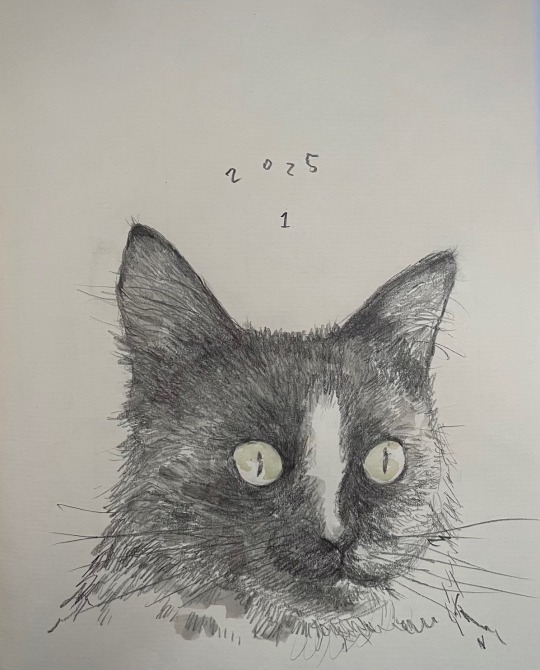
大洋さんから届いた絵 #339
松本大洋さんから、ひと言。
「猫氏はクリスマスも年末年始もお構いなしで、 年中ゴロゴロしています。 僕はこのところ少しあくせくしてます。」
16 notes
·
View notes
Text
“The Apothecary Diaries” Season 2 Final PV / 『薬屋のひとりごと』第2期ファイナルPV
Please note that the English sentences are just my translation.
高順「壬氏様」
Gaoshun “Jinshi-sama.”
Gaoshun “Master Jinshi.”
壬氏「……毒…?まさか…!」
Jinshi “……Doku…? Masaka…!”
Jinshi “……Poison…? It can’t be…!”
『新章開幕(しんしょうかいまく)――』
『Shinsho kaimaku――』
『New chapter begins――』
壬氏「後宮内に毒物を持ち込もうとした者がいる」
Jinshi “Kokyu-naini dokubutsu’o mochi-komoto shita monoga iru.”
Jinshi “There is someone who tried to bring poisons into the rear palace.”
猫猫「偶然が重なり必然となった、あの事件に似ている…!行かなければ!」
Maomao “Guzenga kasanari hitsuzento natta, ano jikenni niteiru…! Ikanakereba!”
Maomao “It’s similar to that incident where a series of coincidences made it inevitable…! I must go!”
『新たな謎解きの幕が上がる(あらたななぞときのまくがあがる)――』
『Aratana nazo-tokino makuga agaru――』
『The curtain is rising on a new mystery――』
『真珠の涙(しんじゅのなみだ)』
『Shinjuno namida』
『Pearl tears』
猫猫「真珠の涙とはどういうことでしょう?」
Maomao “Shinjuno namida-towa do-iu-koto desho?”
Maomao “What do you mean by ‘pearl tears’?”
『特使の来訪(とくしのらいほう)』
『Tokushino raiho』
『Visit of the envoys』
壬氏「特使たちは一体何を考えているんだ…?」
Jinshi “Tokushi-tachiwa ittai nani’o kangaete-irunda…?”
Jinshi “What on earth are the envoys thinking…?”
『北からの異臭(きたからのいしゅう)』
『Kita-karano ishu』
『Strange smell from the north』
猫猫「ん?何だこの匂い」
Maomao “N? Nanda kono nioi.”
Maomao “Hmm? What’s this smell?”
高順「この匂いは…!」
Gaoshun “Kono nioiwa…!”
Gaoshun “This smell is…!”
『やがて様々な事件が交差し(やがてさまざまなじけんがこうさし)――』
『Yagate sama-zamana jikenga kosa-shi――』
『Various incidents cross by and by, and――』
猫猫「中祀での暗殺未遂事件は、多くの人間が関わっている可能性が高い」
Maomao “Chushi-deno ansatsu-misui-jikenwa, ookuno ningenga kakawatte-iru kanoseiga takai.”
Maomao “It is likely that many people were involved in the assassination attempt in the medium ceremony.”
『国を揺るがす大事件を引き起こす(くにをゆるがすだいじけんをひきおこす)』
『Kuni’o yurugasu dai-jiken’o hiki-okosu.』
『Cause major incident that will shake the nation.』
『その鍵を握るのは(そのかぎをにぎるのは)――』
『Sono kagi’o nigiru-nowa――』
『The person who holds the key is――』
猫猫「壬氏様…一体何者なんだろう…」
Maomao “Jinshi-sama… Ittai nani-mono nan-daro…”
Maomao “Master Jinshi… Who on earth is he…?”
皇帝「この後行くところへついてきて欲しいんだ」
Kotei “Kono-ato iku-tokoro’e tsuite-kite-hoshiinda.”
Emperor “I want you to follow me to the place where I go after this.”
男「お気を付けください」
Otoko “Oki’o tsuke-kudasai.”
Man “Please be careful.”
壬氏「わかっている」
Jinshi “Wakatte-iru.”
Jinshi “I know.”
♪例えば僕が僕じゃなければ、君が君じゃなければ…♪
♪Tatoeba bokuga bokuja nakereba, kimiga kimija nakereba…♪
♪For example, if I weren’t me, if you weren’t you…♪
『エンディングテーマ「幸せのレシピ」平井大(avex trax)』
『Endingu tēma ‘Shiawaseno Recipi’ Hirai Dai (Ēvekkusu torakkusu)』
『Ending Theme ‘Recipe for Happiness’ by Dai Hirai (avex trax)』
皇帝「朕の花園を手入れする庭師であろう?お前は」
Kotei “Chinno hanazono’o teire-suru niwashide aro? Omaewa.”
Emperor “After all, you’re the gardener maintaining my flower garden.”
高順「特別な方しか身に着けられない物ですから、大切にしてください」
Gaoshun “Tokubetsuna kata-shika mini tsuke-rarenai mono desu-kara, taisetsuni shite kudasai.”
Gaoshun “It’s something only special individuals can wear, so please take care of it.”
壬氏「妙なところで鈍いあの女官でも、そろそろ気づくはずだ…俺の正体に。もしくは既に…。だったら気が楽なんだが…」
Jinshi “Myona tokorode nibui ano nyokan-demo, soro-soro kizuku-hazuda…oreno shotaini. Moshikuwa sudeni… Dattara kiga raku nan-daga…”
Jinshi “Even that court lady who is obtuse at strange points should soon realize…my true identity. Or maybe she has already… I’ll feel better then, though.”
「妙なところで鈍い」 I couldn’t find the best translation for this phrase.
鈍い(にぶい/Nibui): insensitive, dull, slow
妙なところで(みょうなところで/Myona tokorode): at the strange place, somewhere strange
“Even that court lady who is insensitive strangely to something” might be better…?
壬氏「いつまでも…黙っておくわけには…」
Jinshi “Itsumademo…damatte-oku-wake-niwa…”
Jinshi “(I can’t) keep quiet forever…”
♪…世界が結局ほら好きなんだ♪
♪…Sekaiga kekkyoku hora suki-nanda♪
♪…I love the world after all♪
『薬屋のひとりごと 1月10日(金)よる11時40分��送開始…』
『Kusuriya no Hitori-goto Ichi-gatsu tooka (kin) yoru ju-ichi-ji yonjuppun hoso-kaishi…』
『The Apothecaries Diaries Broadcast will begin on Friday, January 10th at 11:40 p.m…』
#apothecary english#apothecary romaji#the apothecary diaries#apothecary diaries#learning japanese#japanese#薬屋のひとりごと#薬屋のひとりごと 英語#薬屋 英語 学習#japan#KNH
13 notes
·
View notes
Text

This might sound kind of silly, but lately I've been really into bingo boards. I started using them last year during some readathons and thought they were a great way to stay motivated, so I figured why not make one for the books I'd like to read in the first three months of January? So yes, this is in conjunction with my 2025 goals post.
For those wondering, I included 20 volumes of manga and 5 novels. Also, I shuffled the entire board so it's not my fault that some series are together. Book titles (and volume number, if applicable) will be under the read more!
This is also ultimately idealized, as much as I will be going for bingo blackout, I don't expect to be able to complete all of these in three months, especially since I also have books in English that I want to read. Making this bingo board was really more of just a way for me to get a plan going and for a little push of motivation.
女の体をゆるすまで(下)
No.6(4)
さびしすぎてレズ風俗に行きましたレポ
3月のライオン(9)
はなものがたり(3)
作りた��女と食べたい女(2)
ベルサイユのばら(4)
生命式
BASARA(7)
BASARA(6)
はなものがたり(2)
ベルサイユのばら(5)
3月のライオン(8)
告白
僕らの地球の歩き方(6)
エリオと電気人形(1)
きのう何食べた?(9)
黒蜥蜴
ベルサイユのばら(6)
作りたい女と食べたい女(3)
女帝エカテリーナ(2)
本を守ろうとする猫の話
きのう何食べた?(10)
エリオと電気人形(2)
かけおちガール(1)
#there are definitely books on here that will be checked off immediately and violently#like bokuchiki and basara are being read IMMEDIATELY once i get them my package that theyre in just shipped#but also. i might just. ignore this until i finish basara. teehee#langblr#studyblr#polyglot#language learning#benkyou posting#japanese#japanese langblr#日本語#bookblr#booklr#manga#hopefully this will be a way for me to be a bit more active on here with what im doing with my language learning#beyond just posting pics of my study sessions#also before i leave for japan i want to post one last jp book collection update
10 notes
·
View notes
Text
前夜祭の黒猫
Black Cats on the Eve
自慢の瞳は 空 の 青 生憎見たことはないけど
Our eyes boast a sky blue, though sadly we've never seen that color
別に困りゃしないのさ だって 夜 の国がお庭だもの
We're not that bothered though, 'cause the night is our playground
.
ハロウィン の 夜 に
On Halloween night
.
にゃあお 僕ら黒い猫
Meow, we're black cats
鏡のドアを飛び越えるのさ
We can jump through the mirror door
にゃあお 夜も追い抜いて
Meow, shall we go, overtaking the night
君をさらいに行こうかな
To snatch you away?
.
ハロウィンの夜に 影だけ残すよ
Only Halloween night, we leave only our shadow behind
待ち焦がれた夜が来るよ 前夜祭の深い夜が
The night we've been waiting for has come, the deep night of the eve
ここからは僕らの時間 遊ぼう
Now it's our time, let's play
かぼちゃのパイにキャンディーに
I want pumpkin pie, candy
ケーキだってほしいの
And cake too
.
お菓子がないなら 怖い イタズラしちゃうかもね?
If you haven't got any treats, then we might play a scary trick on you, yeah?
.
夜 の扉はホラすぐそこ 窓を開けりゃあ飛び出すかもね!
Look, the door of night is right there, open the window and you just might fly out!
そうだね燐寸をたった1本 それで君も仲間入りさ
Yeah, you just need the one match, and then you can join our group
.
ハロウィン の 夜 に
On Halloween night
.
にゃあお さあさ 火 をつけろ
Meow, come on, set the light
悪魔はいつも僕らの味方だ
The devil is always on our side
にゃあお 僕らそうさきっと
Meow, yes, we're sure
ウィル にだってなれるはずさ
To be able to become will-o'-the-wisps
.
暗い夜に 道しるべを灯そう
We'll light some fires to guide you on this dark night
.
空に届けお月様も 赤く赤く染め上げて
We'll jump up into the sky and redden, redden that great moon too
いつの日にか パパ と ママ に届くよ
And then someday it'll reach our Mama and Papa
お菓子をちょうだい
Give us treats
他の誰にもあげちゃ嫌だよ
And you'd better not give it to anyone else
.
とられちゃう前に 全部燃やしてしまおうか
Before someone takes them from us, shall we burn them all up?
.
高く鳴くよ にゃあお にゃあお
We loudly cry out, meow meow
届け届けいつかのように
Let it reach them, reach them, like it once did
今年もまた にゃあお にゃあお
Next year too, meow, meow
赤く染める
We'll dye it all red
.
さあ 火 を灯せ 僕らは ウィル にだってなれるよ
Come on, light the fire, and we can become will-o'-the-wisps
.
にゃあお にゃあお
Meow meow
.
にゃあお 僕ら黒い猫
Meow, we're black cats
永久の国からやってきたのさ
We came from the eternal land
にゃあお 夜も追い抜いて
Meow, we came here, overtaking the night,
パパ と ママ に会いにきたよ
To see mama and papa
.
にゃあお 燃える石はどこ?
Meow, where is that burning stone?
悪魔がいつかくれるはずなのに
The devil is supposed to give it to us someday
にゃあお 僕らが ウィル だよ
Meow, we're will-o'-the-wisps
早く早くお家に帰して
Hurry, hurry, send us home
.
にゃあお 僕ら黒い猫
Meow, we're black cats
いくら鳴いても届かないなら
If we can't reach you no matter how we cry,
にゃあお 赤く染め上げて
Meow, then we'll dye you red
ここにいるとわかるように
So that you'll know we're here
今年もまた会いに行くよ
And go to see you again next year
.
Trick or treat or please leave me go home
.
にゃあお
Meow
#()songs#()mayuko#i can't seem to find a proper series order list#so apologies if they're out of order#though i am not sure if the order is terribly important as yet
9 notes
·
View notes
Quote
いや僕は車や飛行機や銃や時計に興味があります、という人もいようけど、それらは人が作ったもので、人の鋳型なので。犬や猫が好きだという人も、獣の中に人を見ている。人と関係なく存在するもの、自然科学の対象に興味を持つ人はマイノリティだ。
Xユーザーの尻P(野尻抱介)さん
10 notes
·
View notes
Text
Guys! I'm reading a KaiAo fic from Pixiv, completely translated by Google, btw XD, but today's chapter got me sobbing !!! It was so sad
In this story, Kaito and Aoko met in their third year of high school. Kaito is already a well-known magician and has also retired from being Kid.
But in today's chapter he tells his and his father's backstory, and holly flying f.... MY POOR BABY HAD GONE THROUGH SO MUCH!
It completely trashed on the parents, btw, they were the worst of the worst! And it almost makes you think if this is really what happened to them, I hate them more now ! And Aoko was a fracking angel! My god!
I needed to share this. If anyone is interested, I'll level the link!
17 notes
·
View notes
Text
酔っ払ってると走って帰る時あるな 機嫌がいいときは道で側転したいし、子供は産みたくないよな 産みたくないけど、産まれてほしいとは思ってるよ (きらきらの夢のなかで 僕たちは約束をしたね?)私が壊れる前に電話くれてありがとう 猫の写真くれてありがとう 猫が水に落ちて焦る動画 いっつもLINE無視しててごめんね 40℃の熱出す度に私にブチ切れてメッセージしてほしい(こんなん言ったら怒られる)私のメールを10回既読無視してほしい 11回目は、もう本当にやめてって言ってほしい もうあなたのこと好きなあの頃の気持ちはわたしに湧き起こりません 私は人をめちゃくちゃ怒らせては、どうやって許してもらえるか知ってる それはラッキーなことだと思ってない 舌出してるわけじゃない でもこの世で味わうことのできるもののなかでかなり種類が限られてる最高の気分だ こないだきみが意味わかんない理由で2時間泣くので、私は2時間半泣いちゃった ゆきのさんが僕の味方だよっていってくれるように、僕もゆきのさんの味方でいたいです
10 notes
·
View notes
Text
こんにちは、インターネット! これは私の日本語の習うブログですよ。 僕はセラフィン、ポーランド人です。 日本語はちょっと下手なですけど、毎週日本語でポストを書いてみる。多分、英語でポストも書く。 描いて動物や鳥をが好きなので、そのを書くと思います。
よい一日を ❤
(写真は猫カフェで取った、かわいい -w-)

9 notes
·
View notes
Text
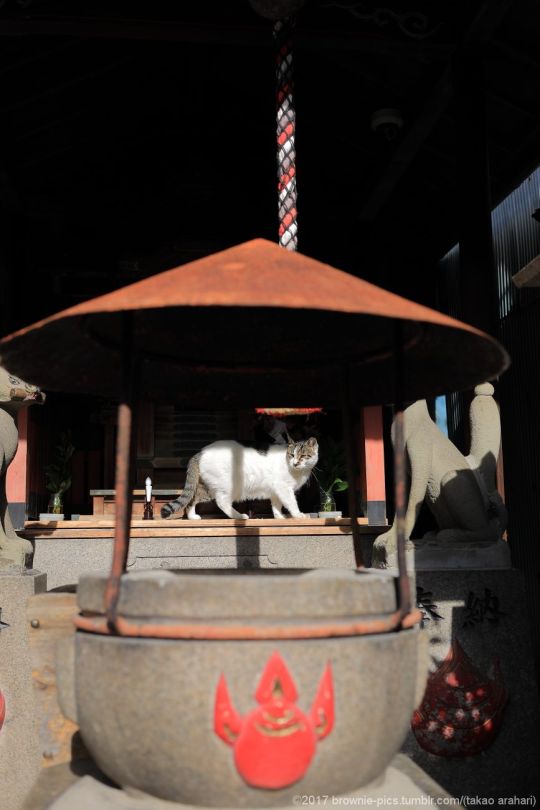
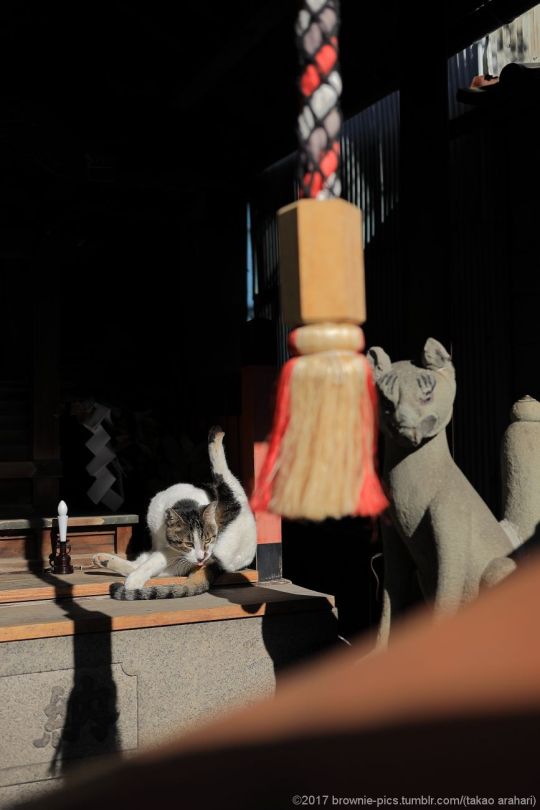
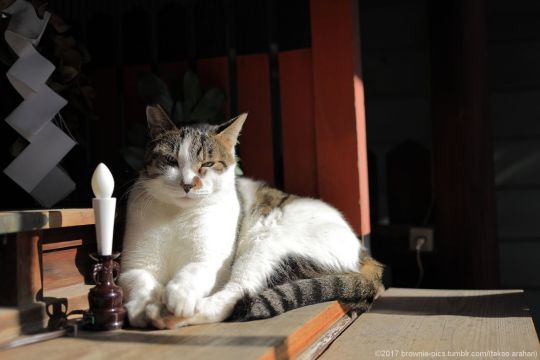
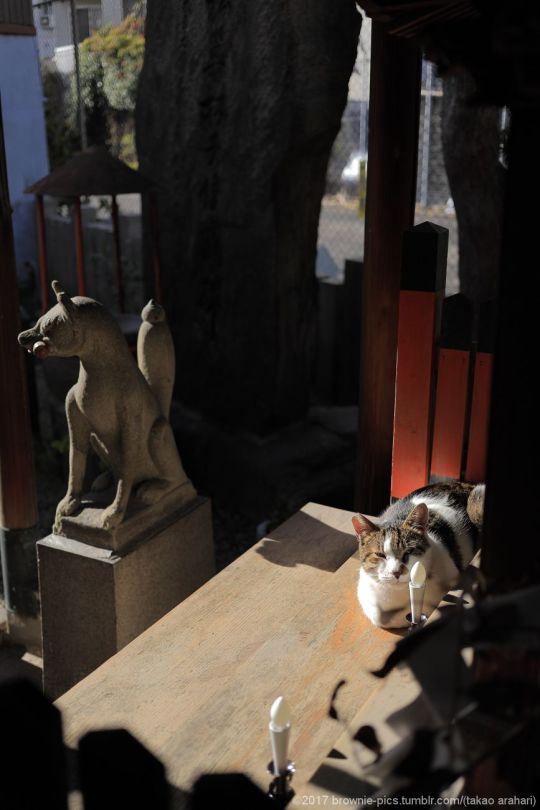
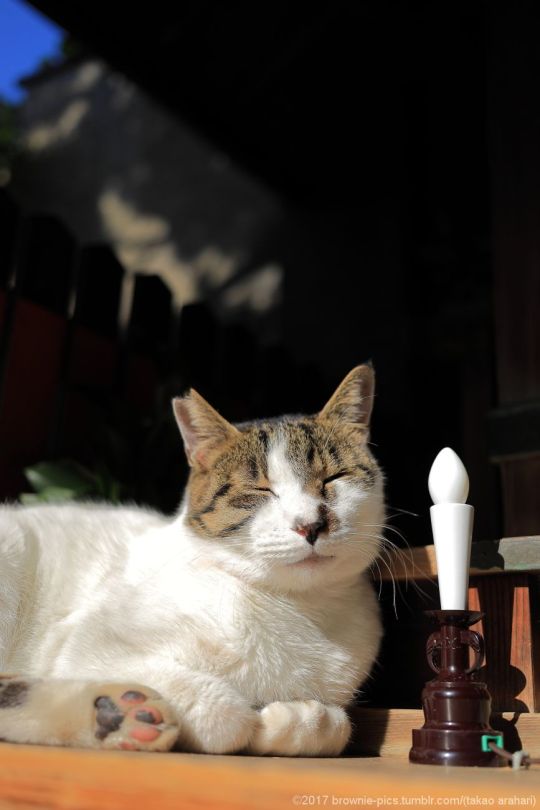
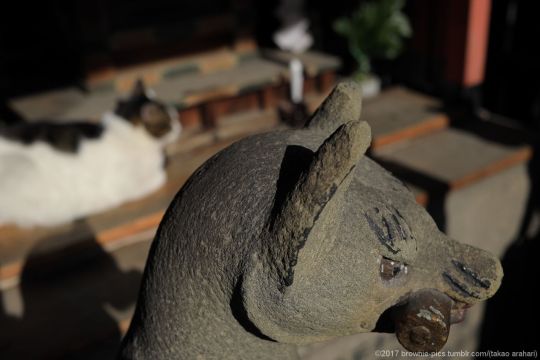
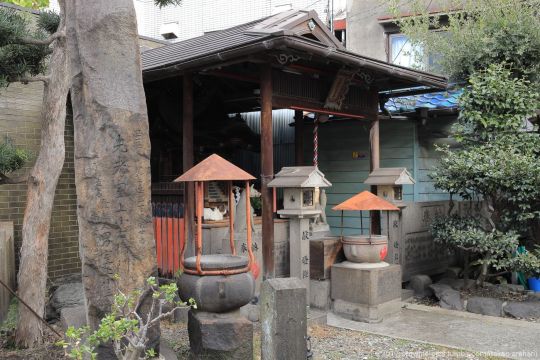
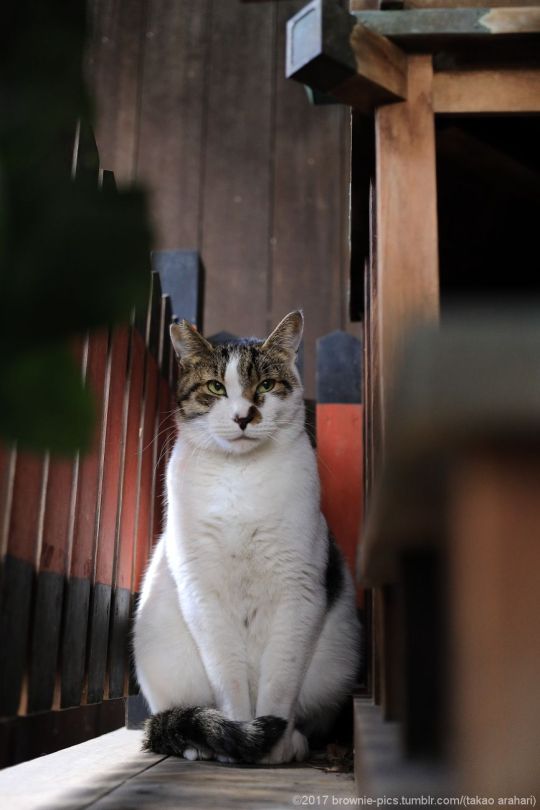
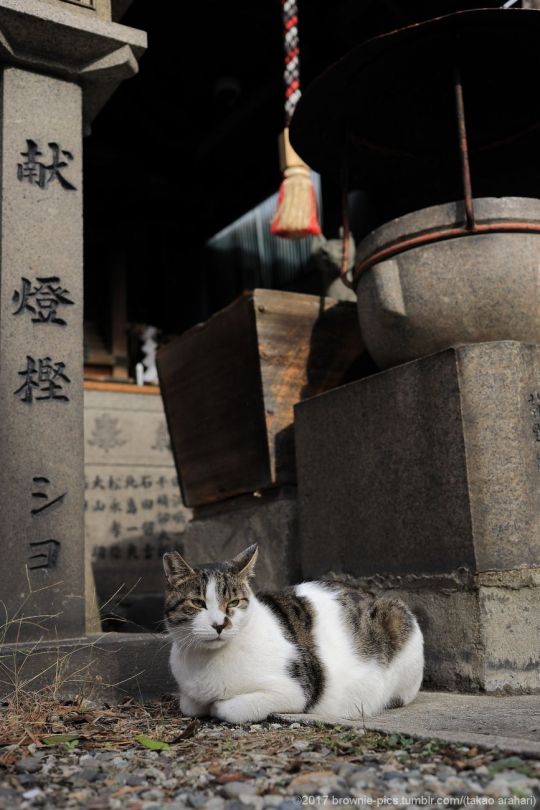
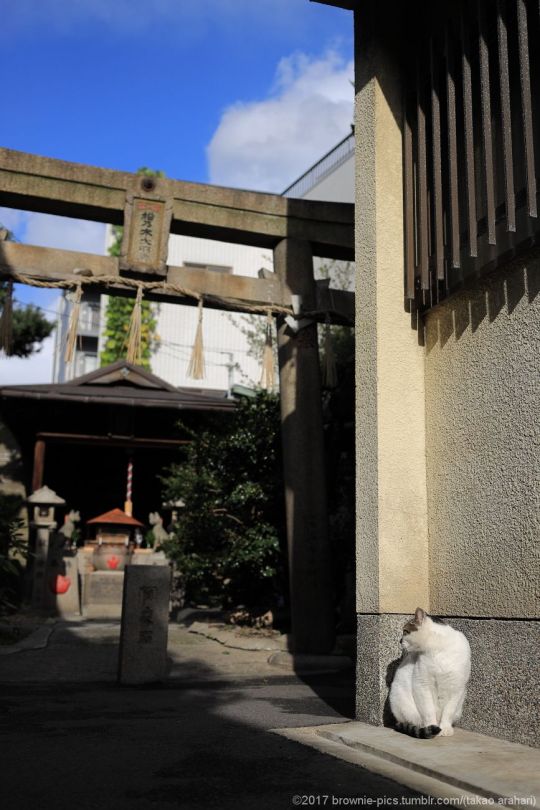
'23.11.18 松之木大明神にて
先日もアップした大阪西成の街ブラスナップ、商店街から横に伸びる細い路地を奥へ歩くと小さな神社に突き当たります。そこで大人しい猫さんに出会いました。
残念ながら触らせてはくれませんでしたが、モデルとしてしばらく僕に付き合ってくれました。ありがとねw
#松之木大明神#matsunoki daimyoujin shrine#西成区#nishinari#大阪#osaka#日本#japan#猫#cat#秋#atumn#奈良公園じゃないシリーズ#photographers on tumblr#natgeoyourshot#nyanmblr
235 notes
·
View notes
Text

ご縁があって、このたびドラドラしゃーぷ#にて『貴方は猫(わたし)の下僕です~ねことげぼくのヒミツなカンケイ~』という猫耳お嬢様のちょっとえっちな漫画を連載させて頂くことになりました。読んで頂けると幸いです……!🙇♂️🙇♂️🙇♂️
・ニコニコ静画 https://seiga.nicovideo.jp/comic/65751
・コミックウォーカー https://comic-walker.com/contents/detail/KDCW_FS04204384010000_68/
384 notes
·
View notes
Text

猫風邪、流行中につき
いわゆる『猫風邪』に罹患してから10日が経つ。
未だに声は戻らない。
身体の治癒能力が喉の部分だけ
機能停止してしまったかのようだ。
朝、散歩しながら推敲・・・
人は五感のうち、いずれかを失ったときに、
他の四つの感覚が鋭くなると言われている。
感覚を確かめる。
嗅覚、鼻詰まりによりイマイチ機能しているとは
言い難いが木々の臭い、
草の香りの中に混じった生き物の息吹を感じる。
視覚、視覚は何を見るか脳と連携していて、
どちらかと言えば僕の脳の伝達は
直視傾向にあって幅広い視野を
持ち合わせているわけではない
(写真を撮る人としてはどうなんだろう、
と疑問が過ぎる)。
特段何か見えるわけではなさそうだ。
触覚、手足がポカポカしているのは歩いているせいだろう。
味覚、食べていない時の味を
意識するのは初めてかもしれない。
朝歯磨きしたハッカの味が僅かに残る。
聴覚、鳥の鳴き声、風が木々をこする音、
その昔、妹に鼓膜を破られた後遺症で
耳鳴りが他の音を遮る。
特段、なんの変化もなし、そもそも、
喋る事は五感に属するのか、どうなのか。
散歩をできる余裕があるのは、よい兆候だと思う事にする。
朝の散歩は、意外と人と出会う。
声が出ない僕にとっては都合がいいのか悪いのか。
もともと、おしゃべりな方でもない、
かと言って聞き上手かと言われれば疑問だ。
人にお愛想を取るのが苦手だ。
その手の会話は中身がないようにも感じる。
人の主義主張は事例は違うにせよ
だいたい同じところに着地するように思う。
きっと感覚の違う人と会いなさいと言う
思召しにも感じ、思考をめぐらせてみるが
今の僕にはわからなかった。
49 notes
·
View notes
Quote
中高生よ、無視するんだ メタに回れという発言を振り切ってそのままいけ 創作物に触れるのが一番楽しい時期は中高生のころだから 多感な時期を忘れた大人は中高生の感性を馬鹿にするが僕は馬鹿にしない あいつらは若さに嫉妬しているだけ 猫猫(任意のキャラ)はかっこいい、それでいいだろう?
(6) Xユーザーの創 / Hajimeさん
29 notes
·
View notes